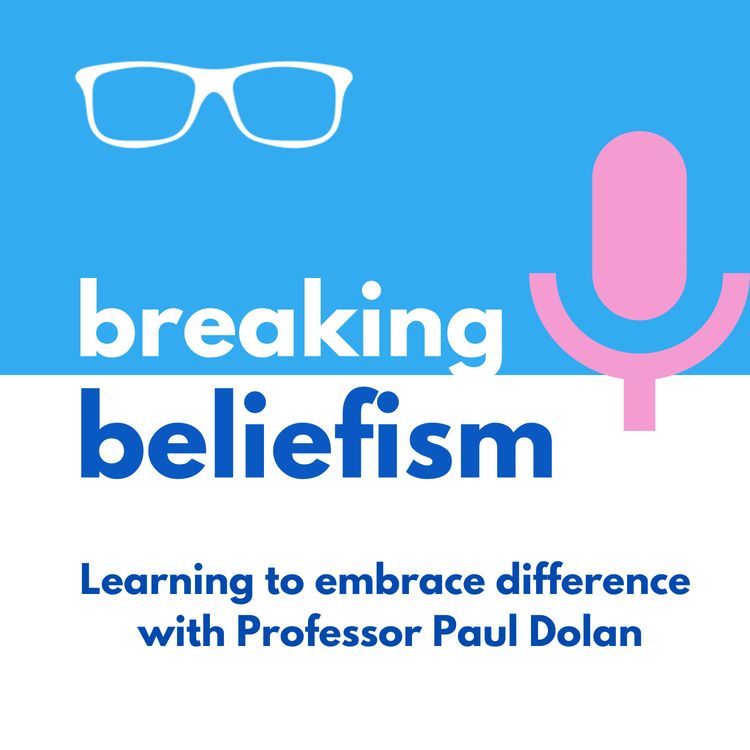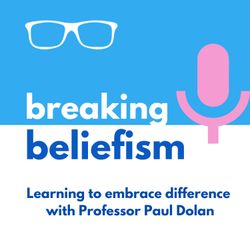Share

Breaking beliefism
Coming soon: breaking beliefism
Season 1, Ep. 0
•
In this new series, Professor Paul Dolan, one of the world's experts on the science behind happiness, sets out to talk to people who might disagree with him, with a view to reducing ‘beliefism’ – his term for discriminating against people with different views. Join him on his journey through beliefism and towards finding ways to listen more to different people and perspectives, which lies at the heart of social progress.
More episodes
View all episodes

11. Season 4 finale
02:29||Season 4, Ep. 11Here’s a quick look back on season 4 of Breaking Beliefism: we covered the power of the medical profession, the nature of consciousness, outrage and silence in organisations, and some very personal stories about pain and addiction.
10. Joanna Moncrieff
29:23||Season 4, Ep. 10In this episode, Professor Paul Dolan talks to Joanna Moncrieff, Professor of Critical and Social Psychiatry at University College London. They question the long-held belief that depression is caused by a serotonin deficit. They discuss the behavioural interventions that could prove to be much more effective than medication.
9. Laura Kudrna
29:26||Season 4, Ep. 9In this episode, Professor Paul Dolan chats to his long-time collaborator, Dr Laura Kudrna. They reflect on their collaboration on his happiness books, the importance of social connection, and how making mistakes is an important part of learning.
8. Lee Willows
27:09||Season 4, Ep. 8In this episode, Professor Paul Dolan talks to Lee Willows, the founder of Community Care Gaming. Lee shares his personal journey from never gambling to a gambling addiction to becoming an advocate for safer gambling. They discuss why people don’t ‘get’ gambling addiction and the importance of support networks.
7. Anil Seth
28:51||Season 4, Ep. 7In this episode, Professor Paul Dolan discusses the nature of consciousness with Professor Anil Seth. They discuss free will and the case of the multi-coloured dress.
6. Elaine Lin Hering
26:41||Season 4, Ep. 6In this episode, Professor Paul Dolan chats to Elaine Lin Hering, a specialist in negotiation and dispute resolution and author of Unlearning Silence. They discuss how staying silent can get in the way of effecitve decision-making and the benefits of having diverse perspectives in the workplace.
5. Karthik Ramanna
26:42||Season 4, Ep. 5In this episode, Professor Paul Dolan talks to Professor Karthik Ramanna from the Blavatnik School of Government at the University of Oxford. They discuss the increasing sense of outrage in today’s society, and the challenges for managing polarisation through respectful dialogue - in organisations and beyond.
4. Leor Zmigrod
27:57||Season 4, Ep. 4In this episode, Professor Paul Dolan talks to political psychologist and neuroscientist Dr Leor Zmigrod about how neuroscience can shed light on our beliefs and the extremes we sometimes cling to. Leor believes that ideologies restrict our capacity to be free but Paul is not so sure.
3. Sami Timimi
29:25||Season 4, Ep. 3In this episode, Professor Paul Dolan talks to Sami Tamimi, a child and adolescent psychiatrist. They discuss Sami’s childhood in Iraq, explore the complexities of mental health diagnoses, and whether mental health has been commodified.